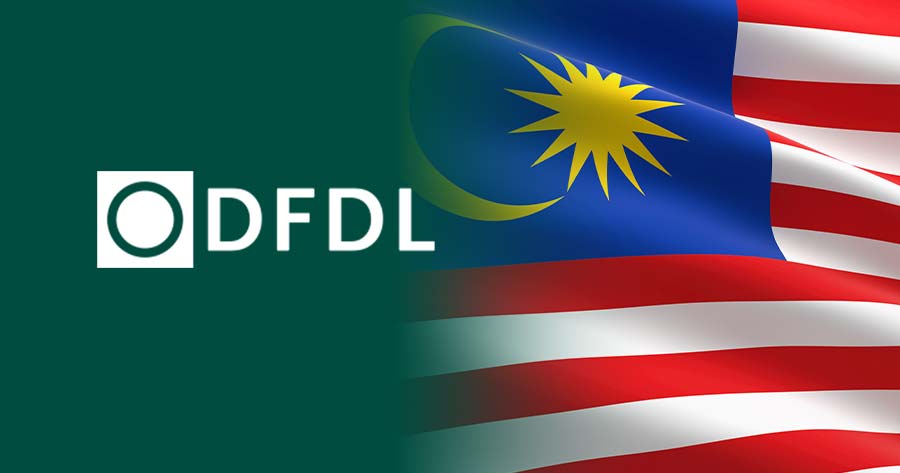Introduction
On 9 July 2024, Bank Negara Malaysia (“BNM”) issued the Policy Document on Licensing and Regulatory Framework for Digital Insurers and Takaful Operators (“DITOs”) (“Policy Document”). This Policy Document sets out the refined entry requirements for DITOs following feedback from various stakeholders. This initiative aligns with BNM’s Financial Sector Blueprint 2022–2026, with one of the objectives being to close protection gaps by advancing the digitalisation of the financial sector and enhancing the dynamism of the insurance and takaful sector. This alert highlights the key updates introduced by the Policy Document.
Application Procedures
BNM had previously limited the number of DITO licences to 5, as communicated in an earlier press statement in November 2022. However, this Policy Document no longer references this limit, opening the field to more applicants. Interested parties are required to submit a formal application to BNM during the licensing application period, which runs from 2 January 2025 to 31 December 2026.
Before submitting an application, all prospective applicants must consult with BNM, starting from 1 October 2024, via the dedicated email, [email protected]. This consultation is a prerequisite to ensure that the applicants are well-prepared and meet BNM’s expectations.
Assessment Criteria
BNM’s assessment of DITO license applications is rooted in three key value propositions:
Inclusion – Applicants must demonstrate how their business models will enhance financial resilience among consumers whose protection needs are currently unserved or underserved.
Competition – Applicants are required to introduce innovative insurance or takaful products that cater to a diverse range of consumer protection needs.
Efficiency – Applicants must be able to provide a convenient and seamless consumer experience, coupled with cost-saving measures.
The issuance of DITO licenses are to improve inclusion, competition and efficiency, hence licensees are expected to continuously demonstrate this.
In addition to these value propositions, BNM will also evaluate applicants on prudential aspects, risk management, business conduct, consumer protection, Shariah compliance (where relevant), and measures against money laundering and terrorism financing.
A comprehensive 7-year business plan is required as part of the application process. This plan should clearly outline the applicant’s strategies for achieving the value propositions, ensuring viable operations, and detailing an exit plan in case of non-compliance or operational challenges. This planning is crucial for minimizing consumer impact and ensuring the continuity of protection coverage and benefit payments.
Operational Requirements
After a DITO is granted a license, it cannot commence operations until it receives written approval from BNM confirming that the DITO has satisfied all operational readiness requirements[1]. These include[2]:
(a) BNM’s approval of the DITO’s key personnel, such as directors, the chief executive officer, the appointed actuary, Shariah Committee members, and the external auditor, where applicable; and
(b) payment of the prescribed annual license fee
The operational readiness review will cover the DITO’s organizational structure, policies, procedures, and controls. It will also assess the compliance management framework, IT and accounting systems, business continuity plan, and other critical systems to ensure they align with BNM’s regulatory standards.
Foundational phase
A licensed DITO will undergo a foundational phase lasting between 3 to 7 years, during which it must prove its viability and operational soundness. The DITO will benefit from a lower minimum paid-up capital requirement of RM 30 million (to be maintained at all times), reflecting its early-stage business operations.
The DITO must continuously demonstrate the viability and operational soundness of its business plan and facilitate BNM’s observation of associated risks. Although a DITO may apply to exit the foundational phase after 3 years, it cannot remain in this phase for more than 7 years without BNM’s approval.
At the end of the foundational phase, the DITO must be able to demonstrate to BNM that it has:
(a) complied with all applicable regulatory requirements;
(b) built sufficient underwriting capacity and risk retention levels;
(c) have in place all critical systems, processes, and resources to support its business operations and effective risk management;
(d) achieved and is maintaining a minimum paid-up capital of RM100 million;
(e) met the long-term viability indicators as specified by BNM; and
(f) achieved satisfactory progress in delivering the value propositions outlined in its business plan.
Emphasis on technology
The Policy Document underscores BNM’s emphasis on technological advancement within the insurance and takaful sectors. Applicants must demonstrate how technology-based solutions contribute to the inclusion, competition, and efficiency value propositions. They must also ensure that governance arrangements and internal controls are robust enough to manage and mitigate the associated risks, thereby avoiding harm or unfair outcomes to consumers.
Successful applicants are expected to leverage emerging technologies in a fair and ethical manner. For instance, adopting advanced analytical tools in underwriting can enhance risk assessments and improve the understanding of customer profiles and behaviors. Additionally, digitalization should streamline operations, from onboarding to claims payment, ultimately delivering cost savings and improved customer experiences.
Conclusion
The Policy Document outlines the requirements for obtaining a DITO license, including application procedures, assessment criteria, and operational readiness standards. It introduces a foundational phase for new licensees, emphasizes the role of technology in enhancing efficiency, inclusion, and competition, and sets long-term compliance expectations for digital insurers and takaful operators in Malaysia.




